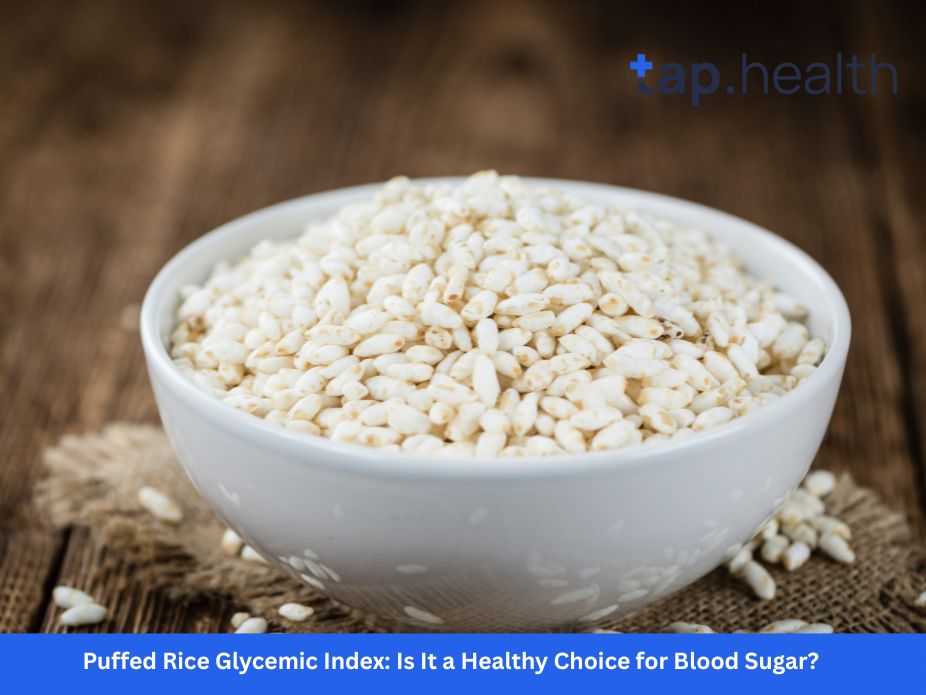Table of Contents
- Intestinal Inflammation and Type 1 Diabetes: A Deep Dive
- Understanding the Gut-Diabetes Link: Inflammation’s Role
- How Intestinal Inflammation Impacts Type 1 Diabetes Development?
- Gut Microbiome, Inflammation, and Type 1 Diabetes Risk
- Managing Intestinal Inflammation to Prevent Type 1 Diabetes?
- Frequently Asked Questions
- References
Have you ever wondered about the hidden connections between seemingly unrelated health issues? Today, we’re diving into a fascinating area of research that explores the intricate relationship between gut health and autoimmune diseases. It turns out, intestinal inflammation: a key player in Type 1 diabetes development, is a significant area of study with potentially groundbreaking implications. Understanding the role of inflammation in the gut could unlock new avenues for prevention and treatment of this chronic condition. Let’s explore the latest scientific findings and what they mean for you.
Intestinal Inflammation and Type 1 Diabetes: A Deep Dive
The rising incidence of type 1 diabetes, affecting approximately 2 million Americans, including 304,000 children and adolescents, highlights the urgent need to understand its underlying mechanisms. While genetics play a role, emerging research strongly implicates intestinal inflammation as a key player in the development of this autoimmune disease. This is particularly relevant in Indian and tropical countries where certain environmental factors may exacerbate this inflammatory process.
The Gut-Diabetes Connection
The gut microbiome, a complex ecosystem of bacteria, fungi, and viruses residing in our intestines, plays a crucial role in maintaining overall health. Dysbiosis, an imbalance in this microbiome, is increasingly linked to chronic inflammation. In type 1 diabetes, this inflammation can target the insulin-producing cells in the pancreas, leading to their destruction and subsequent insulin deficiency. This process is often triggered by an autoimmune response, where the body mistakenly attacks its own cells. Understanding the impact of this inflammation is crucial, and further insights can be gained by exploring how type 1 diabetes affects homeostasis in the body. For more information on this, check out our blog on How Does Type 1 Diabetes Affect Homeostasis? Key Insights.
Regional Considerations in Tropical and Indian Climates
Factors prevalent in tropical and Indian countries, such as exposure to specific infections, dietary habits, and environmental pollutants, can potentially influence the gut microbiome and contribute to increased intestinal inflammation. Further research is needed to explore these regional variations and identify specific risk factors. Understanding these factors is crucial for developing targeted prevention strategies.
Actionable Steps for Prevention and Management
Maintaining a healthy gut microbiome through a balanced diet rich in fiber and prebiotics, reducing exposure to environmental toxins, and addressing any underlying infections are key strategies. Early detection and management of intestinal inflammation can significantly impact the progression of type 1 diabetes. Managing inflammation is key, and if you’re dealing with inflammatory bowel disease (IBD), understanding treatment options is vital. Learn more in our article on How to Treat Inflammatory Bowel Disease. Consult with your physician or a registered dietitian to develop a personalized plan tailored to your individual needs and regional context. Early intervention is paramount, particularly for individuals in high-risk groups within Indian and tropical populations.
Understanding the Gut-Diabetes Link: Inflammation’s Role
While Type 2 diabetes is often associated with insulin resistance, affecting over 80% of those diagnosed, the connection between intestinal inflammation and the development of both Type 1 and Type 2 diabetes is increasingly recognized, especially within Indian and tropical populations. This link highlights the crucial role of the gut microbiome in overall health. Intestinal inflammation, characterized by an imbalance in gut bacteria and increased permeability of the intestinal lining, creates a state of chronic low-grade inflammation throughout the body.
The Gut-Inflammation-Diabetes Pathway
This chronic inflammation can disrupt various metabolic processes, including insulin production and action. In Type 1 diabetes, an autoimmune response often targets the insulin-producing cells in the pancreas. Emerging research suggests that gut inflammation may contribute to the development of this autoimmune response, exacerbating the disease. For Type 2 diabetes, chronic inflammation contributes to insulin resistance, hindering the body’s ability to effectively use insulin. This is particularly relevant in regions like India, where dietary habits and environmental factors can influence gut health and inflammatory responses.
Practical Implications for Indian & Tropical Countries
Maintaining a healthy gut microbiome is paramount for preventing and managing both Type 1 and Type 2 diabetes. Focus on a diet rich in fiber, prebiotics, and probiotics found abundantly in traditional Indian and tropical foods. These dietary components help support a diverse and balanced gut flora, reducing inflammation and improving insulin sensitivity. To learn more about the connection between your diet and gut health, check out our article, What’s the Connection Between Gut Health and Your Diet?. Consult with a healthcare professional or registered dietitian to develop a personalized plan tailored to your specific needs and dietary traditions. Prioritizing gut health through diet and lifestyle modifications is a powerful tool in the fight against diabetes in these regions. For strategies on improving insulin sensitivity, you might find our article on Effective Anti-Inflammatory Diet Strategies to Boost Insulin Sensitivity helpful.
How Intestinal Inflammation Impacts Type 1 Diabetes Development?
Intestinal inflammation plays a significant, yet often overlooked, role in the development of type 1 diabetes, particularly in children and adolescents. With over 1.2 million children and adolescents globally living with type 1 diabetes, as highlighted by the International Diabetes Federation, understanding this connection is crucial, especially in Indian and tropical countries where environmental factors may exacerbate the issue.
The Gut-Pancreas Connection
The gut harbors a complex ecosystem of bacteria influencing immune system development. Disruptions to this delicate balance, leading to intestinal inflammation or dysbiosis, may trigger an autoimmune response. This means the body mistakenly attacks its own cells, including the insulin-producing beta cells in the pancreas, a hallmark of type 1 diabetes. In tropical regions, factors like malnutrition and exposure to certain infections could potentially heighten this inflammatory risk. It’s important to understand that type 1 diabetics may have an immunocompromised state, making them more susceptible to infections that could further complicate the situation.
Regional Considerations
Dietary habits and environmental exposures vary significantly across India and other tropical countries. Infectious diseases and nutritional deficiencies are more prevalent in certain regions, potentially increasing the susceptibility to gut inflammation and subsequent type 1 diabetes development. Early detection and preventative measures are vital. Understanding the root causes of intestinal inflammation is crucial; for instance, inflammatory bowel disease (IBD) shares similar inflammatory pathways.
Actionable Steps for Prevention
For individuals in India and tropical regions, promoting gut health through a balanced diet rich in fruits, vegetables, and fiber is paramount. Supporting healthy gut microbiota through probiotics and prebiotics, coupled with minimizing exposure to environmental triggers, could significantly aid in preventing intestinal inflammation and potentially reducing the risk of type 1 diabetes. Consult your doctor for personalized advice and screening. Early intervention is key in managing and mitigating this serious health concern.
Gut Microbiome, Inflammation, and Type 1 Diabetes Risk
Understanding the Gut-Diabetes Connection in Tropical Climates
The intricate relationship between gut health and the development of type 1 diabetes is increasingly understood. Inflammation within the intestinal tract plays a significant role, impacting the immune system’s response and potentially leading to autoimmune destruction of insulin-producing cells. This is particularly relevant in India and other tropical countries where certain dietary factors and environmental exposures may influence gut microbiome composition and inflammatory responses.
The Impact of Dietary Habits and Environment
Diets high in processed foods and low in fiber, common in rapidly developing regions, can disrupt the gut microbiome’s delicate balance, promoting inflammation. Furthermore, environmental factors such as exposure to infections and pollutants can exacerbate intestinal inflammation, increasing the risk of type 1 diabetes. This complex interplay emphasizes the need for a holistic approach to prevention. While research shows a strong link between maternal gestational diabetes and childhood type 2 diabetes—children born to mothers with gestational diabetes are 7x more likely to develop Type 2 diabetes later in life—understanding the role of gut inflammation in both type 1 and type 2 diabetes is crucial. For more information on how nutrition specifically impacts gut health and the microbiome, see our related article: How Nutrition Impacts Gut Health and the Microbiome – Tap Health.
Promoting Gut Health in India and Tropical Regions
Prioritizing a balanced diet rich in fruits, vegetables, and whole grains is essential for maintaining a healthy gut microbiome and minimizing inflammation. Encouraging breastfeeding is also vital, as it contributes to the development of a robust and diverse gut flora in infants. Regular exercise and stress management techniques further support overall health and contribute to a less inflammatory environment. Consulting with healthcare professionals regarding preventative strategies tailored to individual needs and regional contexts is highly recommended. This includes seeking advice on personalized dietary plans and assessing the risk for type 1 diabetes based on family history and other factors. Learn more about leveraging prebiotics and probiotics to enhance gut health and manage diabetes.
Managing Intestinal Inflammation to Prevent Type 1 Diabetes?
Could managing intestinal inflammation be a key to preventing Type 1 diabetes, particularly in Indian and tropical countries? Emerging research suggests a strong link between gut health and autoimmune diseases like Type 1 diabetes. While lifestyle changes can significantly impact Type 2 diabetes—with studies showing up to 80% of cases potentially preventable through such interventions (learn more)—the connection with Type 1 diabetes is a developing area of focus.
Understanding the Gut-Diabetes Connection
The gut microbiome, the vast community of microorganisms in your intestines, plays a critical role in immune system development and regulation. Disruptions to this delicate balance, leading to intestinal inflammation, are increasingly implicated in the onset of autoimmune disorders. In tropical climates, particularly in India, dietary habits and environmental factors may influence gut microbiota composition, potentially affecting the risk of developing Type 1 diabetes.
Actionable Steps for Gut Health
Maintaining a healthy gut is crucial. This includes focusing on a diet rich in fiber from fruits, vegetables, and whole grains common in Indian cuisine. Fermented foods like yogurt and certain pickles, traditional components of many Indian diets, can also contribute to a balanced gut microbiome. Reducing processed foods, sugar, and unhealthy fats is equally vital. Regular physical activity and stress management techniques, such as yoga and meditation, are also important for overall health and may positively impact gut inflammation. Consulting with a healthcare professional or registered dietitian is recommended to develop a personalized plan. For more tips on managing your diabetes and boosting your overall health, check out our blog on 10 Daily Habits for Better Type 1 Diabetes Control.
Regional Considerations
Given the significant variations in diet and lifestyle across India and other tropical regions, tailored strategies are crucial. Understanding the specific environmental factors and traditional dietary patterns prevalent in your area can inform personalized approaches to gut health management and potentially contribute to lowering the risk of Type 1 diabetes. Early intervention and proactive healthcare choices are key. Maintaining a strong immune system is also vital, and you can learn more about this in our article on Boosting Immunity While Managing Diabetes.
Frequently Asked Questions on Intestinal Inflammation
Q1. What is the link between intestinal inflammation and type 1 diabetes?
Intestinal inflammation, especially dysbiosis (an imbalance of gut bacteria), is strongly linked to the development of type 1 diabetes, particularly in children and adolescents. This inflammation can trigger an autoimmune response that attacks insulin-producing cells in the pancreas.
Q2. Why is this link more prominent in India and tropical regions?
Environmental factors, dietary habits, and infections common in India and tropical regions may worsen gut inflammation, increasing the risk of type 1 diabetes. These factors may contribute to dysbiosis and a heightened autoimmune response.
Q3. How can I protect myself or my child from developing type 1 diabetes through gut health?
Maintaining a healthy gut microbiome is key. This includes eating a balanced diet rich in fiber and prebiotics, minimizing exposure to toxins, and promptly addressing any infections. Early detection and management of intestinal inflammation are also vital.
Q4. What kind of dietary changes might help reduce the risk?
A diet rich in fiber and prebiotics helps support a healthy gut microbiome. Focus on whole grains, fruits, vegetables, and foods that promote beneficial gut bacteria. It’s recommended to consult a nutritionist or doctor for personalized dietary advice.
Q5. Are there specific limitations to preventing type 1 diabetes through gut health management?
While a healthy gut microbiome significantly reduces risk, it’s not a guaranteed preventative measure. Genetic predisposition and other factors also contribute to type 1 diabetes. A personalized approach, considering regional factors, is recommended for optimal management.
References
- A Practical Guide to Integrated Type 2 Diabetes Care: https://www.hse.ie/eng/services/list/2/primarycare/east-coast-diabetes-service/management-of-type-2-diabetes/diabetes-and-pregnancy/icgp-guide-to-integrated-type-2.pdf
- What is Diabetes: https://www.medschool.lsuhsc.edu/genetics/docs/DIABETES.pdf



